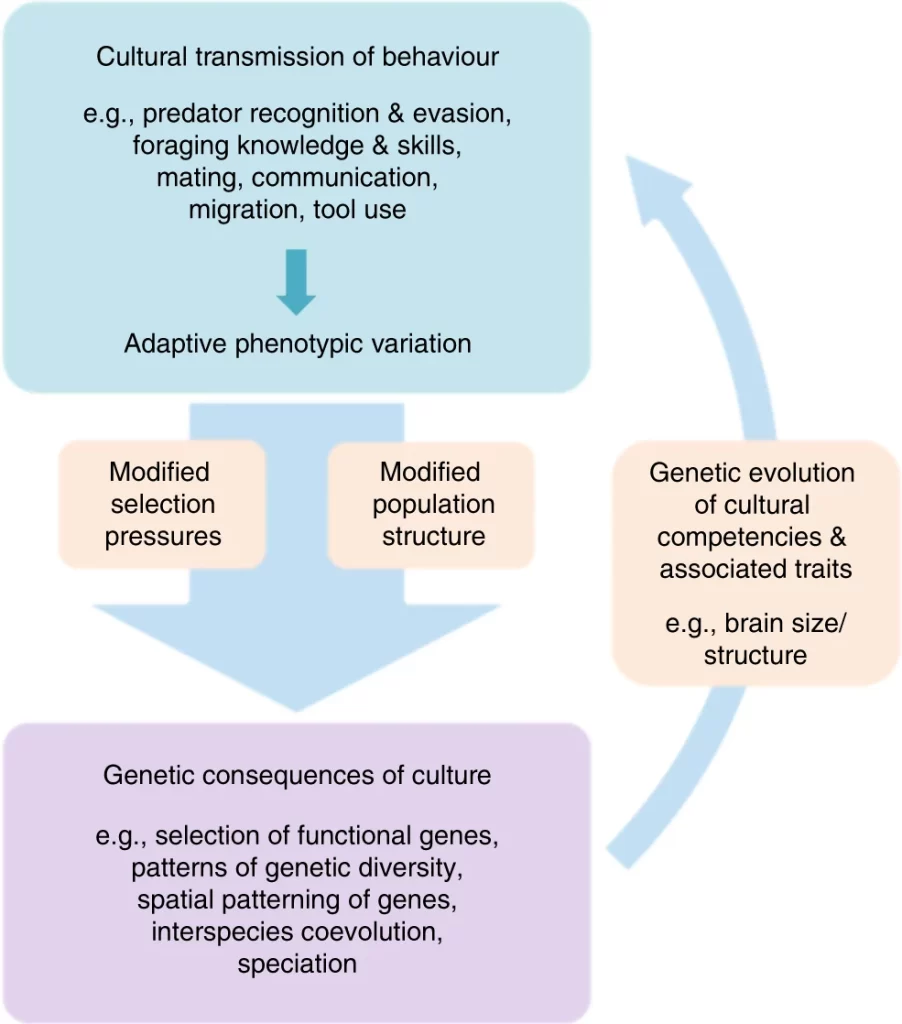New Future
A kind of feed reader

Murray Bookchin’s ideas on dialectical naturalism have sparked significant debate among ecophilosophers, even within social ecology—particularly his view that it is possible to extract an objective ethics from natural history. Chaia Heller and Peter Staudenmaier are two ISE instructors who have been on opposite sides of this debate in past years, which they are here…

When my teacher Pamela Boyce Simms gave a presentation at the 2017 ISE Summer Gathering in Marshfield, she opened with the intentionally inflammatory statement that “It’s all the fault of the Enlightenment.” An audible gasp arose from the audience, a moment of silence before hands shot up to defend a cornerstone of Bookchin’s emphasis on…

This essay is the first of a planned three-part series delving into the science of ‘first and second nature.’ “Man did not create society; society existed before Man.” Peter Kropotkin, “The State: Its Historic Role” “Unless we understand the language of the fauna and flora, we will neither understand ourselves nor become ecological socialists.” Abdullah…

Armed with its twisted philosophy of history and mystical sensibility, the very idea of eugenics can be seen as radically conservative or downright reactionary. Its most mundane form appears in statements that “Western civilization” or “Western values” are in decline or under threat. Emerging fears of immigration or miscegenation reflect beliefs that racial “purity” has…

Calls for radical community-based action in response to the climate crisis seem to grow louder all the time. A series of community-based, climate justice initiatives, inspired to varying degrees by the Communalist philosophy of Murray Bookchin and the revolutionary movement in Rojava, sprung up around the United States in the form of the Cooperation/Symbiosis-affiliated dual…

The 1960s saw the development of the struggles of various social groups as well as alternative politics in the Western world to the dogmatic Marxism that had previously dominated the Left. Social movements against racism and patriarchy emerged, and alternative culture blossomed in everyday life. These struggles led to the emergence of new ideas and…

Murray Bookchin was keenly aware of the unique constraints, as well as possibilities, imposed by specific historical eras on those lodged within them. Much of his political and intellectual project was expressly directed at criticizing, amending, and transcending traditions and thinkers whose ideas had, in his view, been rendered inadequate by subsequent changes in social…

The indigenous peoples of the Pacific Northwest—ranging from southern Canada to northern California—have long had a reverential relationship with salmon. It made frequent appearances in their myths and was often duplicated in the totemic structures of the Salish peoples. The embedding of salmon into tribal mythologies fulfilled an existential need among the indigenous peoples; salmon…

This issue of Harbinger is dedicated to exploring what might be called social ecology “heresies” – new perspectives that critique, challenge, or rethink its prevailing “orthodoxies” and take aim at some of our political community’s sacred cows.

Murray Bookchin’s ideas on dialectical naturalism have sparked significant debate among ecophilosophers, even within social ecology—particularly his view that it is possible to extract an objective ethics from natural history. Chaia Heller and Peter Staudenmaier are two ISE instructors who have been on opposite sides of this debate in past years, which they are here…

When my teacher Pamela Boyce Simms gave a presentation at the 2017 ISE Summer Gathering in Marshfield, she opened with the intentionally inflammatory statement that “It’s all the fault of the Enlightenment.” An audible gasp arose from the audience, a moment of silence before hands shot up to defend a cornerstone of Bookchin’s emphasis on…

This essay is the first of a planned three-part series delving into the science of ‘first and second nature.’ “Man did not create society; society existed before Man.” Peter Kropotkin, “The State: Its Historic Role” “Unless we understand the language of the fauna and flora, we will neither understand ourselves nor become ecological socialists.” Abdullah…

Armed with its twisted philosophy of history and mystical sensibility, the very idea of eugenics can be seen as radically conservative or downright reactionary. Its most mundane form appears in statements that “Western civilization” or “Western values” are in decline or under threat. Emerging fears of immigration or miscegenation reflect beliefs that racial “purity” has…

Calls for radical community-based action in response to the climate crisis seem to grow louder all the time. A series of community-based, climate justice initiatives, inspired to varying degrees by the Communalist philosophy of Murray Bookchin and the revolutionary movement in Rojava, sprung up around the United States in the form of the Cooperation/Symbiosis-affiliated dual…

The 1960s saw the development of the struggles of various social groups as well as alternative politics in the Western world to the dogmatic Marxism that had previously dominated the Left. Social movements against racism and patriarchy emerged, and alternative culture blossomed in everyday life. These struggles led to the emergence of new ideas and…

Murray Bookchin was keenly aware of the unique constraints, as well as possibilities, imposed by specific historical eras on those lodged within them. Much of his political and intellectual project was expressly directed at criticizing, amending, and transcending traditions and thinkers whose ideas had, in his view, been rendered inadequate by subsequent changes in social…

The indigenous peoples of the Pacific Northwest—ranging from southern Canada to northern California—have long had a reverential relationship with salmon. It made frequent appearances in their myths and was often duplicated in the totemic structures of the Salish peoples. The embedding of salmon into tribal mythologies fulfilled an existential need among the indigenous peoples; salmon…

This issue of Harbinger is dedicated to exploring what might be called social ecology “heresies” – new perspectives that critique, challenge, or rethink its prevailing “orthodoxies” and take aim at some of our political community’s sacred cows.

Interested in writing for Harbinger? We are now accepting submissions for Issue 3. Send us a pitch at harbinger@mail.mayfirst.org.